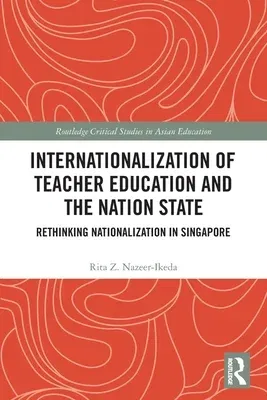The relationship between teacher education and internationalization is
often regarded as one that has just begun, sparked by globalization and
its knowledge economy. This book questions such an assumption by arguing
that although contemporary demands on teacher education have intensified
the need for internationalization, teacher education and
internationalization have a deep and complex relationship, which is
context dependent and has developed differently over time.
This book urges its readers to question and rethink overly nationalistic
approaches to teacher education. It shows how the internationalization
of teacher education could be used as a strategic tool to support
sustainable educational development and meet labor market demands for
twenty-first century competencies. It puts the spotlight on the
imperatives for internationalizing teacher education and its present
forms, and considers this current phenomenon in the context of
Singapore. This nation state has a history of internationalization,
albeit with differing rationales, dimensions and strategies.
Internationalization has been a key driver of the Singapore education
system's sustained growth, from its humble beginnings to its present
state as one of the best performing education systems in the world. This
book will be of great interest to policy makers, academics, researchers
and graduate students in the fields of international and comparative
education, teacher education, and South East Asian studies.

